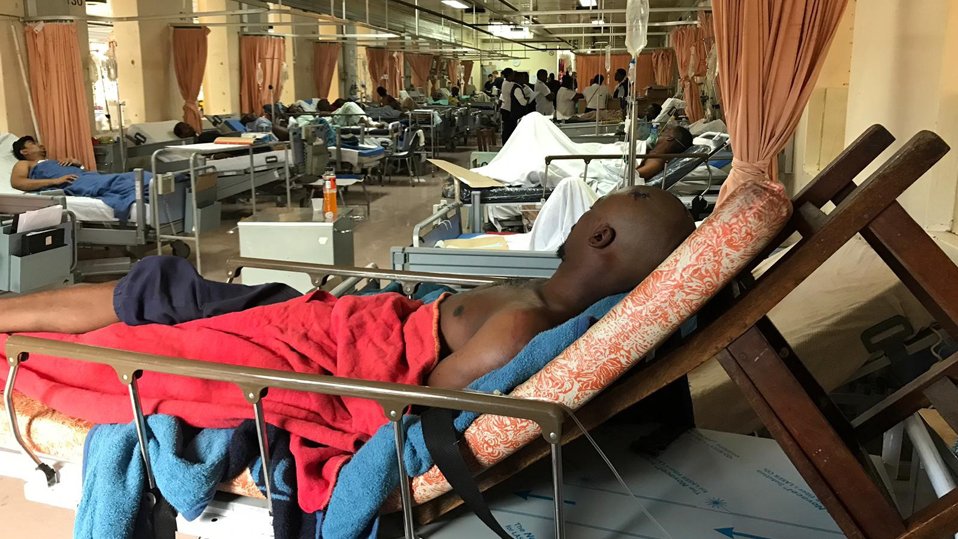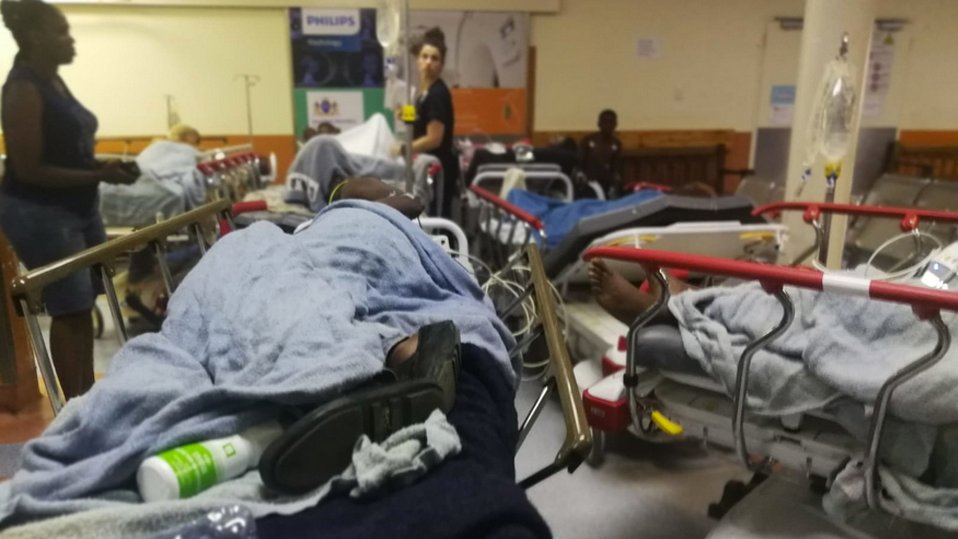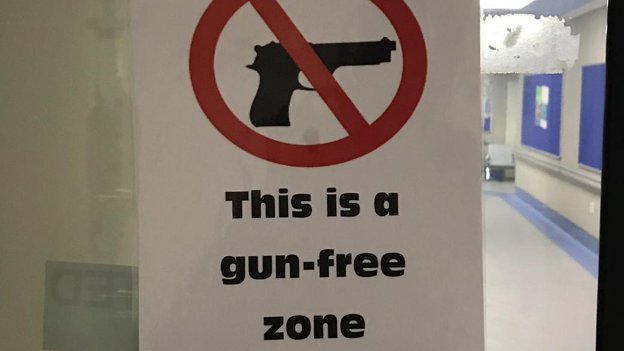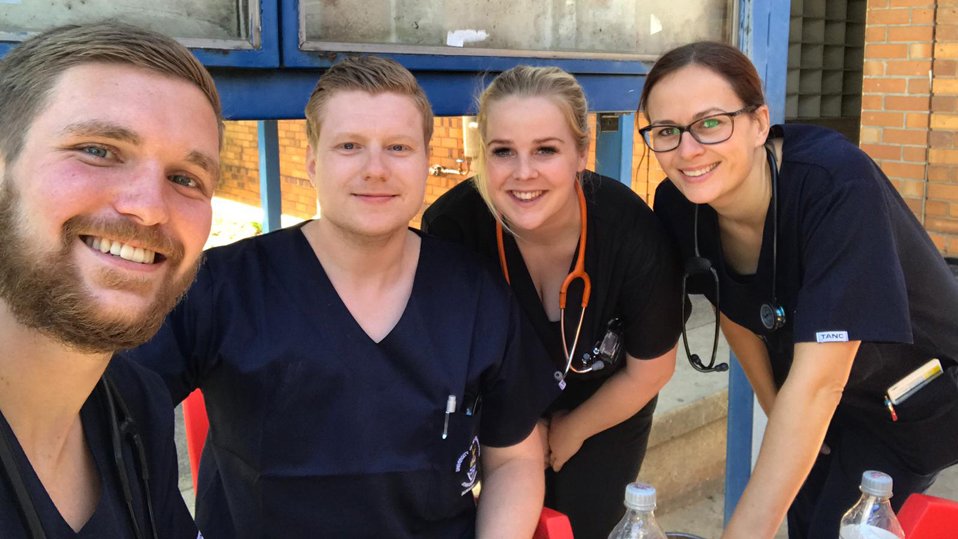A different view on Medicine
Winning in South Africa
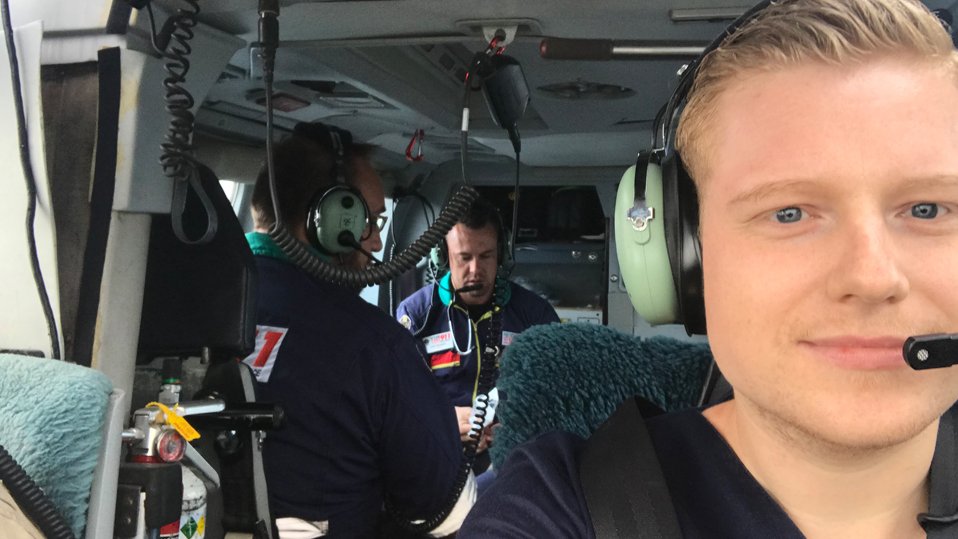
The aspiring doctor decided to go to Johannesburg after watching the report "Saving Soweto". The hospital has an excellent reputation as a training center for surgeons. Here, Danilo sums up his stay.
The third largest hospital in the world
"Are you winning?" …a question I was confronted with many times during my time in South Africa – never loud, impatient, or accusatory. For me, the question is symbolic for the work and training in the trauma unit of "Bara", as the hospital is also called.
With 3,200 beds, it is the third largest hospital in the world – a medical center for South African people who cannot afford health insurance. Due to being close to Soweto, there is a never-ending stream of patients. Soweto (South Western Township), which actually consists of 30 townships, is a place of extremes. Two Nobel Prize winners lived here, and it is also one of the places with the highest rates of murder and rape in the world.
Improvisation required
The trauma department is divided into a large area for the lightly injured and the "Resus" (resuscitation), where the life-threatening injuries are taken care of – including the attempts at resuscitation.
The rush of patients was extreme, especially during the night shifts and on weekends. At the beginning of the shift, the emergency room was already packed. Everyone was aware of his/her duties, as all the processes are very clearly structured. With an increasing numbers of patients, however, we had to improvise more and more: staff was scarce, equipment didn't work, and important materials were missing.
Resus is turned into a surgery
In addition to the gunshot wounds and other serious injuries – caused by knives, machetes or the like – we often had to deal with the consequences of traffic accidents. In Johannesburg it is, unfortunately, quite common for people to drive while being heavily intoxicated, and the highways are also used as a walkway between the city and the townships. Thus, we tried to take care of the lightly injured patients, most of whom had already been waiting for hours, as well as we could – always expecting the next seriously injured person to arrive, which was always the case.
In Resus, the seriously injured were merely patched up so that they could be brought to the OR. If necessary, we had them on the operating table within minutes. Sometimes, their condition was so critical that we did not even have those few minutes. Then, without further ado, the Resus was turned into a surgery.
Yes, I've won!
Despite all the suffering and cruelty, I wouldn't want to miss my time there. I will always remember the multitude of unique experiences, but also the optimism of the people in unimaginable situations.
Like the reassuring feeling of colleagues sticking their heads through the blood-stained curtain between the stations to ask "Are you winning?": It was more of a universal question; not just referring to that moment, much more than just asking how you were getting on with what you were doing at that time. After my time at the Bara I can only answer: “Yes, I've won! …much more than just four months in South Africa."
Contact: d.hackner@tum.de
